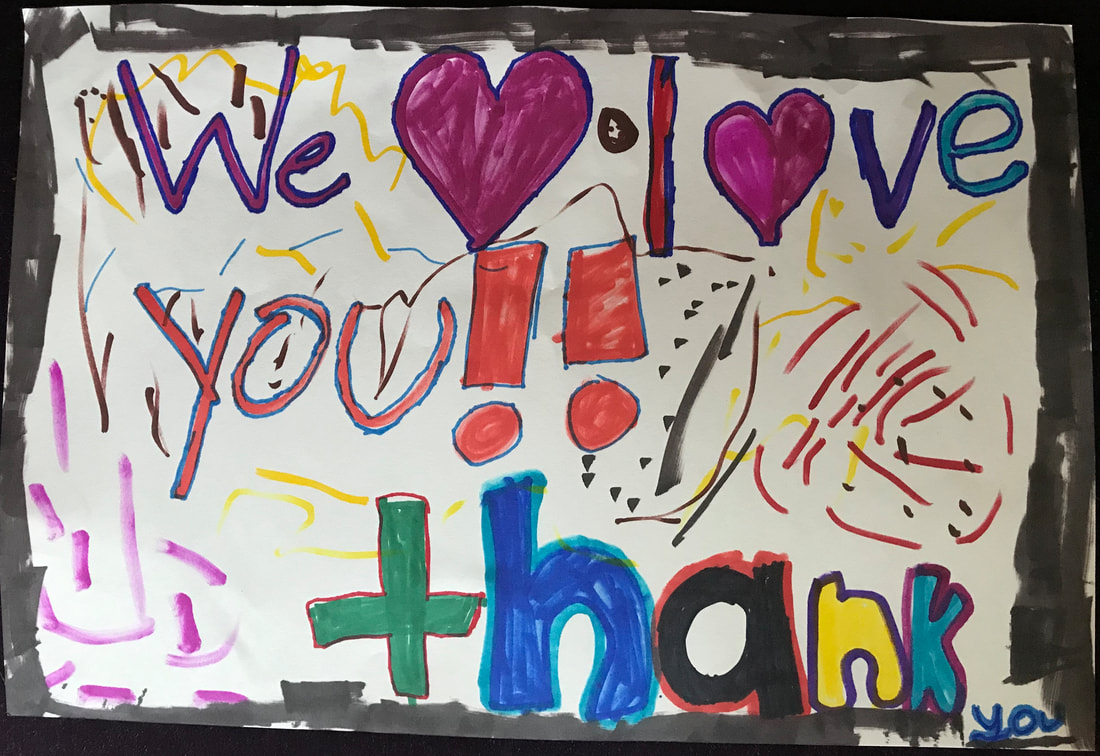|
I often lament in my own heart and mind that my more radical days seem to be behind me. What am I doing with my life and my upbringing? And then, there are other times when I think my radical waters may actually just run a little more deeply now - yes, more still with less activity agitating the surface, but perhaps with a wisdom and nonviolence I never knew in my more activist days.
The moment I regret that I don’t do work that is directly focused on social change anymore, I seem to find myself having a conversation about justice or equity or privilege or race or gender with my daughters (6 & 8). And, the more I have those conversations with them, with all the apparent complexity and history and economic underpinnings, the more frequently I arrive at a simple answer - a simple explanation - a simple premise: Love. This morning I watched from the sidelines as my kindergartener had her final class meeting on Zoom, replete with a photo slide show and original music by her exceptional teacher (who also taught my 8-year-old who loves her so much still that she sat in on the final class of kindergarten again with her little sister). The love of the kids for their teacher was obvious. They wouldn’t let her end the meeting. “Mrs. Scott, I lost a tooth.” “Mrs. Scott, my Mom was crying.” “Mrs. Scott, I got a haircut.” “Mrs. Scott, I got a puppy.” “Mrs. Scott…” Her students love Mrs. Scott. In turn, Mrs. Scott’s love for the kids is honestly somewhat profound. It’s not just that she is chronically kind and funny with the kids. It’s not just that she’s encouraging and seems genuinely interested or concerned when they tell her they have a hang nail. It’s not just the hours of work that went into creating her classroom and a wonderful virtual last class that felt warm and close even as it was remote. It’s not the tears she cried at her own video which she had certainly watched a thousand times while putting it together. Yes, of course, it’s all of that. But, it’s Mrs. Scott’s bold and radical and clearly articulated message in words and on the screen and in actions that said: I love you. She wrote it right there on the screen: I love you. She said it to all of those squirmy, smiling, doting faces in their little Zoom boxes: I love you. The kids know it. They know it down deep. And, this is why they read. This is why they work hard for her. This is why they want to be their best selves for their teacher - even when that often means all the repressed ugly comes out on the parents when they get home! I still appreciate that - most days. What more profound way could a child start her educational journey than associating it with being loved and with learning to love herself and to love others in her classroom and beyond - to love in a way that, in her kindergarten style, encourages her to make simple choices to build a more loving world with kindness and color and unicorns and chaos. Now, I’m not naive. I’ve been through school and I’ve worked around education. Sadly, this sort of overt and radical love does not last - at least not in this pure form. It lives here and there with those special teachers, but is not the first association most of us have with school. But, imagine if we built schools around the idea of love. Imagine if the love a kindergarten teacher gives her children was the same love given by an AP Biology teacher to a Senior in High School. Imagine if the love among peers encouraged in a kindergarten classroom was cultivated in Middle School classrooms. Imagine what school would look like! Imagine what our children would be like! Imagine what our society would be like! There was a time when I would have ignorantly suggested that this was some sort of naive vision for social change, that it was a nice thought for a Hallmark card, but hardly one bent toward radical social change. I was wrong. My belief today in love as the necessary foundation for change is more deep and more radical than any belief I have ever held. And, as I continue to read and learn, I understand more deeply how it is actually woven into the most profound and effective social change work in our nation’s history - and similar change work across the globe. This is not a new thought. It is not a unique thought. And yet, it is a thought we fail to keep, to protect, to live into, to remain committed to over a lifetime of education and learning. Myles Horton puts it clearly and succinctly and with an almost 90-year history of work at the Highlander Research and Education Center to prove it can be more than an idea. It can be put into practice. “I think if I had to put a finger on what I consider a good education, a good radical education, it wouldn’t be about methods or techniques. It would be loving people first.” We love you too, Mrs. Scott. Myles Horton, We Make the Road by Walking: Conversations on Education and Social Change
1 Comment
Jeff
5/27/2020 12:17:39 am
They make it seem effortless those who do it best.
Reply
Leave a Reply. |
Categories
All
Archives
April 2024
|

 RSS Feed
RSS Feed